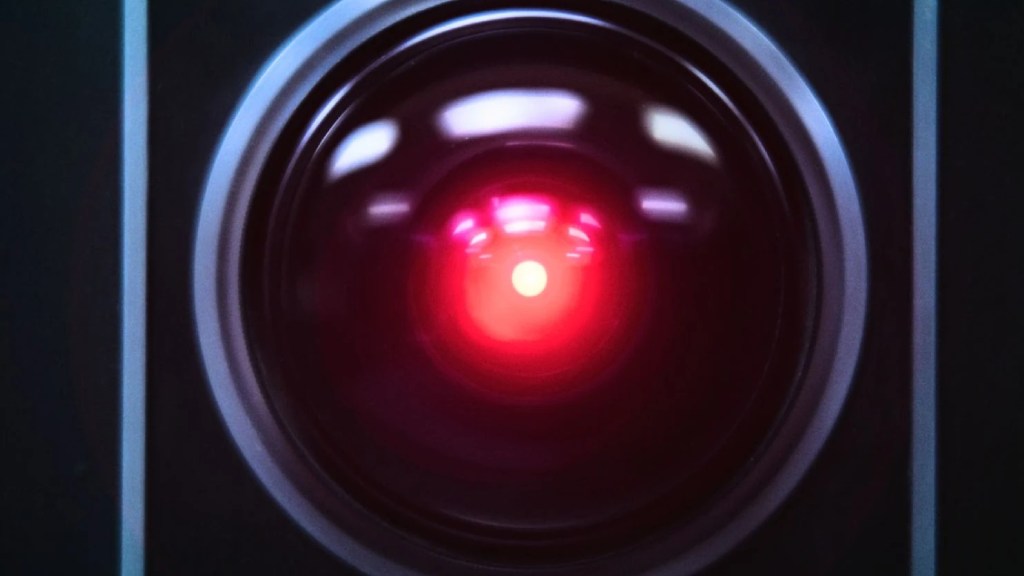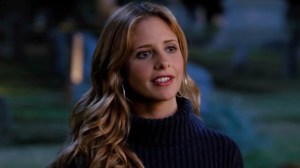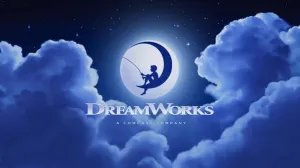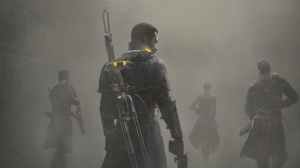The sci-fi genre is one of the most consistently popular, and has been for many decades. The speculative nature of the genre combined with its broad scope allows for many varied stories encompassing a range of ideas and themes, and that’s something that has enabled sci-fi to capture the imagination of its audience for generations. Movies are just one sphere in which sci-fi seems to have specifically excelled, with many incredible examples unfolding on the big screen. And, as the very nature of the genre implies, many of the best sci-fi movies look forward to imagine a future filled with technological or societal advancement.
Videos by ComicBook.com
Interestingly, the high-tech innovations depicted in sci-fi movies aren’t always as far-fetched as they might seem. On some occasions, sci-fi has actually inspired technological innovation, and other times, the movies of the genre have seized upon a particular idea that seems all but inevitable in humanity’s near future. Regardless, it’s always a little spooky when a sci-fi movie predicts an aspect of the future that comes true, especially when it’s something that just decades ago seemed incredibly futuristic.
9) Back to the Future Part II (1989)

Often hailed as one of the best sci-fi movie sequels of all time, Back to the Future Part II took the sci-fi cues of its predecessor and quite literally doubled down, exploring both the future and the past over the course of its story. The movie’s futuristic vision of 2015 features many elements that have since been proved inaccurate — with flying cars being one of the most disappointing absentees in modern society — but it also managed to predict several technological advancements with alarming accuracy. Considering the movie looked 24 years into its future, it’s pretty eerie how accurate some of its ideas were.
Back to the Future Part II‘s future scenes saw a future in which watches had advanced capabilities, the weather could be accurately predicted ahead of time, and people watched multiple screens at once instead of a single TV. All of these have since come true, with smart watches, improved meteorological understanding, and multi-screen set-ups all now commonplace in the modern world. While we’re still missing our hoverboards and flying cars, it’s actually a little spooky just how much Back to the Future Part II got right.
8) The Terminator (1984)

While The Terminator may have featured one of the most terrifying sci-fi movie robots of all time, its ideas about the future once seemed both frightening and far-fetched. Its time-travelling robotic protagonist appeared from a future in which machines had risen up, prompting a war that threatened to end humanity. Led by the self-aware AI known as Skynet, The Terminator‘s future seemed a bleak and outlandish one that served as a cautionary tale about advancements in robotics.
While we aren’t yet living in a robot apocalypse, the rise of AI in recent years is still alarming. In a matter of just a few short years, AI has advanced from rudimentary computer systems capable of playing chess to remarkably powerful tools able to create realistic videos, images, and compile data into what appears to be almost original ideas. The advancement in the fields of AI and robotics have been so drastic that it’s hard not to find The Terminator‘s future more unsettling than ever, even if it hasn’t exactly come true as yet.
7) Minority Report (2002)

Loosely based on Philip K. Dick’s novella of the same name, the 2002 movie Minority Report starred Tom Cruise in a movie in which a specialized division of law enforcement uses precognition to apprehend criminals before they are able to break the law. The Precrime department also uses other futuristic tools, such as advanced touch-screen displays, to access information. And, while arresting people for the intent of committing crime is not yet a common practice, several aspects of Minority Report‘s story have already come true in the modern world.
The whole notion of pre-crime isn’t entirely dissimilar to modern advertising, which uses people’s data to determine which products they may be interested in in order to better appeal to consumers. While state surveillance of the average citizen’s data for monitoring potential criminals isn’t common practice, it has been documented on multiple occasions around the world. Furthermore, Minority Report‘s super-cool interactive screens already basically exist, with touchscreens and virtual or augmented reality screens all affording very similar capabilities, which is a much less terrifying way for the movie’s predictions to come true.
6) Total Recall (1990)

Total Recall is remembered as one of the best sci-fi movies of the 1990s, despite being one of the first major releases of the genre in the decade. Starring Arnold Schwarzenegger, it’s another big-screen Philip K. Dick adaptation, this time of his short story We Can Remember It for You Wholesale. One of the movie’s biggest assertions about the future is the functional human colony on Mars, which is not yet a reality, but many of its more functional innovations have already come to pass.
One particular scene in the movie sees Arnie’s character hop into a taxi, only to grow frustrated with the non-human driver. Driverless cars are still a developing technology, but have already become active around the world, making the prediction a reality. Additionally, the use of real-time GPS and flat-screen TVs were also high-tech imaginings at the time, and both have since become commonplace aspects of modern society, making several of Total Recall‘s minor sci-fi details uncannily prescient.
5) Soylent Green (1973)

Soylent Green is best remembered as a sci-fi movie with a perfect ending in which its protagonist reveals that the titular superfood is in fact made from humans, but it also imagined several aspects of the future. Starring Charlton Heston, the 1973 movie was set in 2022, which has now been and gone, and many of the societal predictions made by the movie proved to be inaccurate. However, on some levels, Soylent Green predicted one of the biggest global crises facing humanity today.
Soylent Green‘s 2022 is a world devastated by rampant deforestation and pollution, both of which are complicated by overpopulation. This isn’t entirely inaccurate, either: 2022’s real-world population had climbed to alarming heights, while climate change has been acknowledged as being beyond the point of no return. While humanity hasn’t yet resorted to widespread cannibalism to survive, the notion of making synthetic foodstuffs has also become more prevalent, making many elements of Soylent Green‘s story uncomfortably close to the mark.
4) 2001: A Space Odyssey (1968)

Stanley Kubrick’s 2001: A Space Odyssey is widely considered not just a sci-fi classic, but one of the greatest movies ever made. Its cutting-edge special effects have held up brilliantly, and the movie still looks great today. Its story, which mainly concerns a crew aboard a space station who find themselves at odds with their all-powerful on-board computer, HAL-9000 — one of the best sci-fi movie villains ever created — is obviously way off being a reality, but it’s much closer than it may otherwise seem at a glance.
Consider for a moment that the International Space Station had not yet launched when the movie was released, and its imaginative depiction of Space Station Five is especially impressive. Then consider the growing societal unease surrounding the use of AI in increasingly important ways, doing away with human error at the potential cost of losing humanity. In that, 2001: A Space Odyssey is as relevant today as it was upon release, or, in some ways, perhaps even more so.
3) Her (2013)

2013 might seem far too recent for a movie to offer a shocking insight into the future, but Her strangely did just that. Spike Jonze’s drama follows Theodore Twombly (Joaquin Phoenix), a lonely man facing an impending divorce, as he bonds with an AI. The interface, known as Samantha, is voiced by Scarlett Johansson, and much of the movie’s story revolves around Theodore’s romantic connection with the artificial intelligence software.
While the idea wasn’t entirely unrealistic in 2013, it did seem somewhat far-fetched that such a thing was likely to happen in the near future. However, fast-forward just over a decade, and reports around the world have shined a light on people entering emotional relationships with AI programs, bringing Her‘s story to life with alarming accuracy. While the movie doesn’t expressly judge the idea of AI companionship, it is a little eerie just how prescient its story proved to be.
2) WarGames (1983)

WarGames might not feature cool sci-fi movie robots or far-flung locations across the galaxy, as its sci-fi premise was instead rooted in technology much closer to home. The 1983 movie stars Matthew Broderick as a young hacker who accesses a United States supercomputer, setting into a motion a chain of events that threatens to begin World War III. While WarGames‘ sci-fi premise was distinctly realistic even by the standards of the early 1980s, it’s not until we examine it in hindsight that we see just how eerie its predictions were.
In essence, WarGames predicted the rise of cyberwarfare. The movie itself is reported to have prompted Ronald Reagan to have taken cybersecurity more seriously, and it’s important to consider that it was released in a year when the internet was little more than a idea seen as unrealistic. Considering the various international crises that have since played out that have featured digital components, it’s fair to say that WarGames predicted the future with startling accuracy.
1) Brazil (1985)

Terry Gilliam’s 1985 movie Brazil isn’t as well-known as it deserves, as its imagining of the future is as thought-provoking as it is distressing. It follows Sam Lowry, a low-level government employee in a future society weighed down by endless bureaucracy and totalitarian attitudes. The movie’s depiction of the future is often absurd in its imagining of Lowry’s daily life, but many of its ideas have actually become increasingly relevant in modern society.
The notion that constant technological advancement could lead to lives that are increasingly frustrating to the average person has since been proven to be completely accurate. The mindless bureaucracy of dealing with any corporate or state entity seems to become more convoluted with each passing year, and that’s something that Brazil all but predicted. Though the specific future imagined in the movie isn’t quite a reality yet, the frustratingly monotonous nature of Lowry’s life is something that modern audiences can sadly identify with even better than they could in 1985.
Honorable Mention: Contagion (2011)

While it wouldn’t be accurate to describe Contagion as a terrifying sci-fi movie, it would also be unfair not to acknowledge just how spooky it was in its prediction of the future. The 2011 movie featured an all-star cast, and followed the spread of a global pandemic, beginning with its onset and going on to depict its aftermath and the societal implications of a world ravaged by contagious illness. In many ways, the reason Contagion can’t be considered science fiction is that there simply isn’t enough fiction in its premise: it was so accurate that it actually transcended the genre entirely.
Almost every element of Contagion‘s story rings true with those who lived through the COVID-19 pandemic. From the titular sickness being uncovered as initially bat-borne to its apparent Asian point of origin, all the way to the conspiracy theorists and those denying the efficacy of quarantine measures, Contagion almost perfectly imagined what life would be like should a pandemic break out. As the story of the movie came to pass within a decade of its release, it’s fair to say that Contagion predicted the future in the eeriest way imaginable.
What do you think? Leave a comment below and join the conversation now in the ComicBook Forum!









